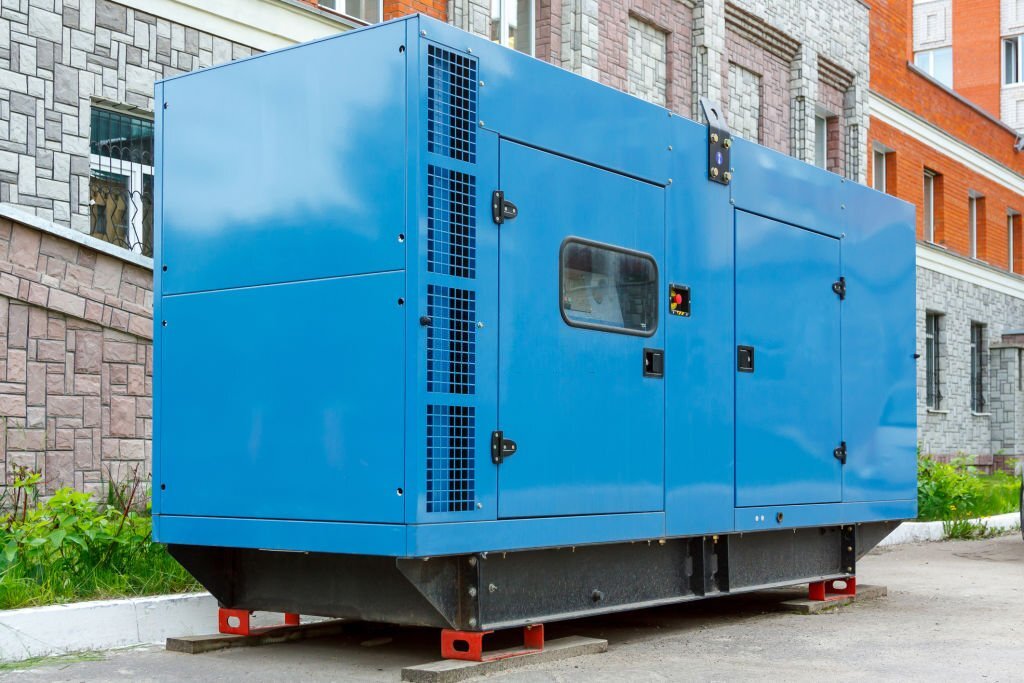
In the complex realm of heavy equipment operations, efficiency and fuel consumption stand as pivotal determinants of operational success. Power generators, the lifelines of these operations, play a crucial role in balancing energy needs with environmental and economic concerns. But how do power generators for heavy equipment stack up when it comes to efficiency and fuel consumption? In this comprehensive article, we embark on an exploration of the intricacies surrounding generator efficiency and fuel consumption. From understanding the factors influencing efficiency to delve into types of generators, fuel options, technologies improving efficiency, real-world case studies, benefits of fuel-efficient generators, and best practices, we navigate the domain where energy meets performance.
Understanding Generator Efficiency
Generator efficiency is the ratio of output power to input fuel.
1. Output Power: The actual electricity generated by the generator.
2. Input Fuel: The amount of fuel consumed to generate the output power.
3. Efficiency Formula: Efficiency (%) = (Output Power / Input Fuel) × 100.
4. Efficiency Significance: Higher efficiency means less fuel consumption for the same output power.
Factors Influencing Generator Efficiency
Several factors impact the efficiency of power generators.
1. Generator Type: Different generator types have varying inherent efficiencies.
2. Load Level: Efficiency can vary based on the generator’s load level.
3. Fuel Type: Fuel energy density and combustion efficiency affect overall efficiency.
4. Maintenance: Well-maintained generators perform more efficiently.
Types of Generators and Efficiency Comparison
Different generator types offer varying efficiency levels.
1. Diesel Generators: Efficient, especially at higher loads, with good fuel consumption.
2. Gasoline Generators: Less fuel-efficient and more suitable for smaller loads.
3. Natural Gas/Propane Generators: Efficient and cleaner-burning, suitable for continuous operation.
4. Solar Generators: High efficiency but dependent on sunlight availability.
Fuel Options and Efficiency Considerations
Fuel type impacts both efficiency and fuel consumption.
1. Diesel Fuel: High energy density and efficient combustion contribute to good efficiency.
2. Gasoline: Lower energy density affects both efficiency and fuel consumption.
3. Natural Gas/Propane: Cleaner-burning fuels offer good efficiency and emissions reduction.
4. Biofuels: Environmentally friendly but may have lower energy density.
Technologies Improving Generator Efficiency
Advanced technologies enhance generator efficiency.
1. Variable Speed Generators: Adjust engine speed based on load for better efficiency.
2. Catalytic Converters: Reduce emissions and improve combustion efficiency.
3. Automatic Voltage Regulators (AVR): Maintain stable voltage, improving equipment efficiency.
4. Smart Load Management: Distribute load across multiple generators for optimal efficiency.
Real-World Case Studies
Case studies offer insights into the efficiency of power generators.
1. Construction Site Generator: A diesel generator provides efficient power for construction equipment.
2. Telecommunications Tower: Propane generator ensures reliable and efficient backup power.
3. Mining Operation: Natural gas generator reduces emissions and fuel consumption.
4. Remote Research Station: Solar generator provides clean and efficient power for remote research.
Benefits of Fuel-Efficient Generators
Fuel-efficient generators offer numerous advantages.
1. Cost Savings: Reduced fuel consumption leads to lower operational costs.
2. Environmental Benefits: Lower emissions contribute to environmental preservation.
3. Longer Run Times: Fuel-efficient generators can run longer on the same amount of fuel.
4. Sustainability: Using less fuel promotes sustainable energy practices.
Best Practices for Optimizing Fuel Consumption
Efficient generator use demands adherence to best practices.
1. Load Optimization: Match generator size to load for optimal efficiency.
2. Maintenance: Regular maintenance enhances efficiency and performance.
3. Proper Ventilation: Ensure generators have proper ventilation for efficient combustion.
4. Smart Load Management: Distribute loads effectively among multiple generators.
Future Trends and Technological Advancements
Technology continues to shape the future of generator efficiency.
1. Hybrid Systems: Combining generators with renewable energy sources enhances overall efficiency.
2. Energy Storage Solutions: Batteries store excess energy for later use, improving efficiency.
3. Advanced Controls: Smart controls optimize generator performance and fuel consumption.
Conclusion
In the intricate landscape of heavy equipment operations, power generators serve as the linchpins of efficiency and fuel consumption. By understanding the factors influencing efficiency, exploring various generator types, fuel options, technologies enhancing efficiency, and learning from real-world case studies, heavy equipment operators can optimize performance while minimizing environmental impact and operational costs. Fuel-efficient generators stand as beacons of innovation, paving the way for a future where energy meets the economy in perfect harmony.

